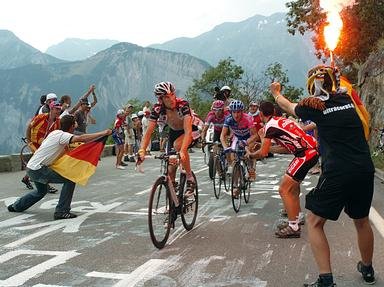
Everyone Wins Trivia Quiz
Tour de France Winners
Everyone of the following cyclists has won the world's most famous cycle race, the Tour de France; some of them more than once. The date given is the year of their first victory. See if you can put them in the correct chronological order.
An ordering quiz
by KayceeKool.
Estimated time: 3 mins.
- Home
- »
- Quizzes
- »
- Sports Trivia
- »
- Cycling
- »
- France